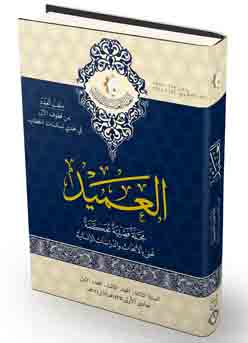Abstract
Lexically, the originally Arabic word "minbar" received its earliest
recorded written use in English in 1816. [1, 2, and 3] Muslim
communities usually keep a minbar for their preachers, whether in
mosques or in other places where Islamic rituals are supposed to be
led by a person qualified for such purposes.
Functioning as a place for delivering speeches, the phenomenon
of a certain place for such a function must be a religious universal,
for it is hard to find any well-established religion, whether essentially
Divine or otherwise, to have remained or survived without
preaching. Needless to say, the spread of Islam owes a great deal to
preaching for which minbar is its marker. [4]
recorded written use in English in 1816. [1, 2, and 3] Muslim
communities usually keep a minbar for their preachers, whether in
mosques or in other places where Islamic rituals are supposed to be
led by a person qualified for such purposes.
Functioning as a place for delivering speeches, the phenomenon
of a certain place for such a function must be a religious universal,
for it is hard to find any well-established religion, whether essentially
Divine or otherwise, to have remained or survived without
preaching. Needless to say, the spread of Islam owes a great deal to
preaching for which minbar is its marker. [4]
Keywords
Husayni Minbar
minbar
preaching
universalization
